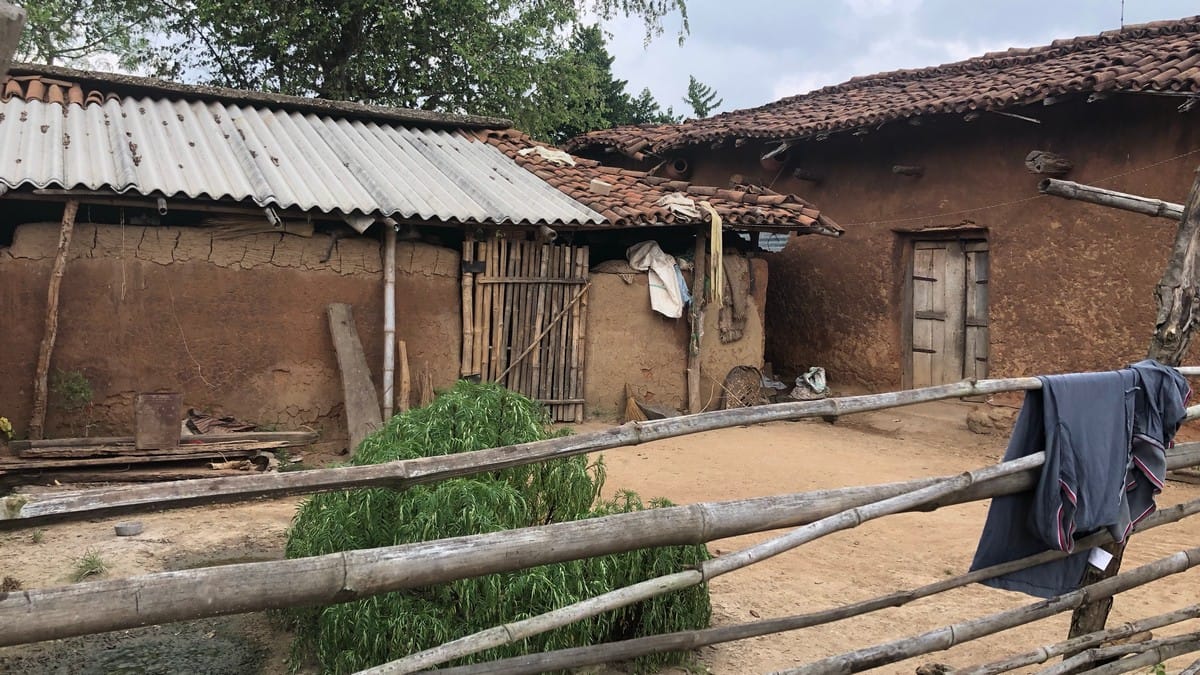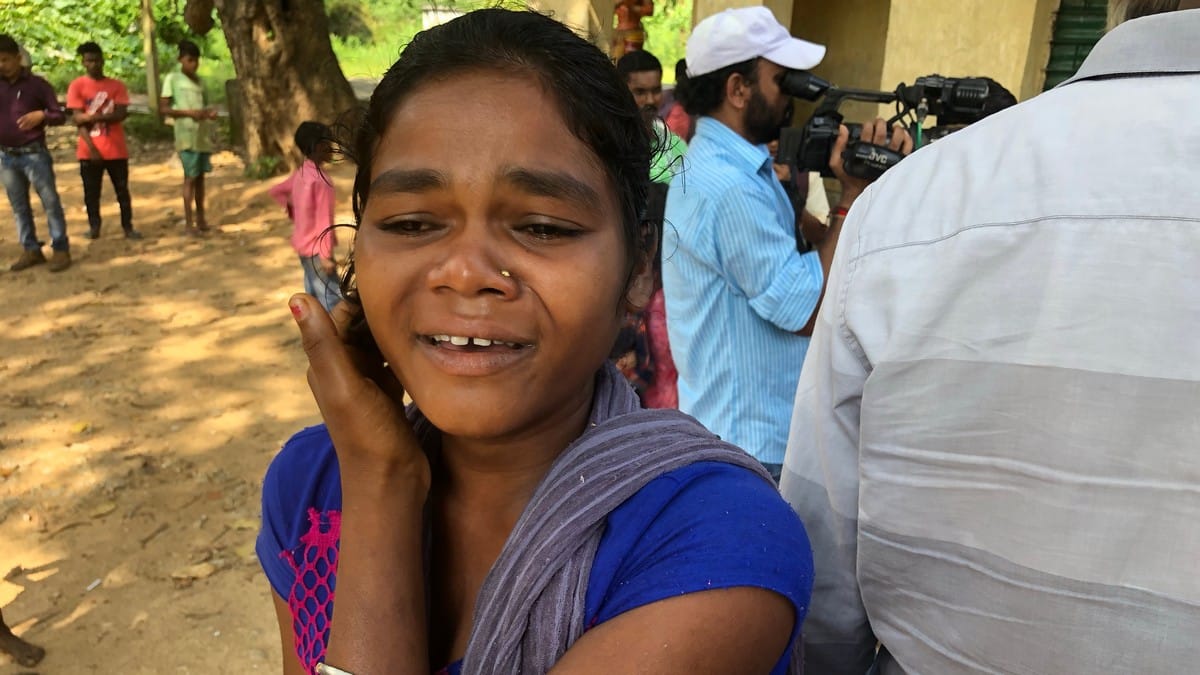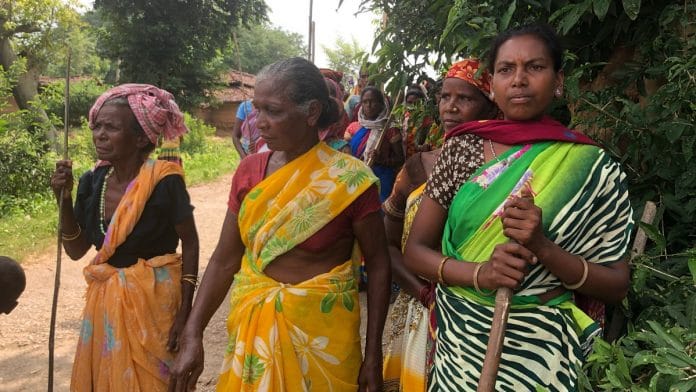Karra, Khunti (Jharkhand): An annual tribal custom, a child lifting rumour and an alleged cow slaughter video led to the clashes between two rival tribal villages in Jharkhand’s Khunti district that left one person dead and two seriously injured last week.
ThePrint travelled to the two villages — Suari and Jaltanda — in the district affected by Left Wing Extremism (LWE), and spoke to self-proclaimed witnesses of the incident and villagers who recounted the sequence of events.
Some of them blamed a local “vigilante group” for the assault.
On Sunday morning, Kalantus Barla reached the remote Suari village to visit a relative and take part in Barapahari Puja, an annual tribal custom in which the villagers sacrifice cow and distribute the meat among villagers.
Around 10 am, a group of nearly 50 men attacked the villagers who were allegedly slaughtering a cow near a river. While others managed to run away, the mob got hold of Barla, a specially-abled 40-year-old who was visiting from the neighbouring Gopalpur village, and lynched him, said Ilim Tudu who claimed to be a witness to the incident.
Tudu said Barla couldn’t run away due to his physical condition and fell when the attackers started beating him with sticks and stones.
Two others — Phillip Horo and Fagu Kachhapand — were attacked too and they sustained serious injuries. While Phillip Horo is a resident of Suari, Fagu Kachhapand is from Jaltanda from where the attackers allegedly came from, said Anjali Tudu, a Suari resident.
The local police reached the spot immediately after receiving information about the incident. The three — all Christian tribals — were rescued, but Barla succumbed to his injuries hours after the assault.
Horo was discharged after treatment at a local hospital. He recorded a statement based on which the police lodged an FIR under Section 302 (murder) of the Indian Penal Code.
Kachhapand’s condition is stated to be critical and he is under observation in Ranchi Medical College and Hospital.
Also read: No matter what Modi says, Jharkhand is now the hub of mob lynching
Rival villages, and how the mob reached Suari
Suari and Jaltanda, two tribal villages located inside the densely forested Karra area in Jharkhand, share an old rivalry with a long-drawn tussle over cow slaughter and selling or distribution of cow meat in the area.
Cow slaughter and sale of beef are banned in Jharkhand.
While Suari has about 100 tribal people, most of whom are Christians who attend a church located 10 km away from the village, Jaltanda has over 200 people and is dominated by tribal Hindus.
On the day of the attack, two villagers from Jaltanda village went to the neighbouring Suari to enquire about a child lifting rumour.
“On Sunday morning, someone said a village kid was taken to the riverside at Suari. We often hear such child lifting rumours here. So, two men from our village went there to check,” said Purna Soren, a Jaltanda resident.
“When they came close to the river, they saw a group of men slaughtering a cow,” he said.
“Both of them clicked some images, probably made a video and rushed back to their village only to forward the pictures and the video to members of a local cow vigilante group. In an hour, a group of men emerged with sticks,” added Soren.
The group was joined by some men from Jaltanda village. The mob then stormed the Suari village and started assaulting those who had gathered for the puja. The assault continued until the police reached the spot, said a witness who didn’t wish to be identified.
A senior officer at the Karra police station told ThePrint that this was the first ever incident of mob lynching in the area. The police are not aware of any fight between two villages over cow-slaughter earlier, said the officer who did not want to be named.
The custom and the assault
The Suari villagers said cow slaughter is not a regular practice and is done only once a year.
“We do Barapahari Puja every year. This is an age-old tribal custom. We sacrifice an animal, mainly a cow for the well being of the village,” said Ilim Tudu.
Sanjai Horo, nephew of Phillip, said, “The custom was performed by not more than a dozen people. Other men of the villages went to church for Sunday mass. So, they could not build any resistance to the strong mob.”

Phillip’s son Amrit said, “My father was mercilessly beaten by them. Hindus also sacrifice goat, we do not object. So what problem do they have with our customs? They assaulted my father with stones and sticks. He can barely stand on his feet.
“The deceased person (Barla) was a guest. He came here to visit his relative and was killed. We will also not spare them now,” he said.
The action that came later
The Jharkhand Police picked up five accused men, including three from Jaltanda village, in connection with the lynching Sunday.
“We have already taken five men in our custody. A murder case has been initiated. We are yet to get the post-mortem reports. Strict action would be taken against the offenders and we assure that the culprits would be convicted,” M.L. Meena, Additional Director General, Operations, Jharkhand Police, told ThePrint.
After the police action, the women of Suari village armed with sticks sat on roads leading to the village and blocked the entry of “outsiders”.
The women of Jaltanda village too started agitating on the roads, near a temporary police camp in the village.
Prabha Singh, sister of 21-year-old Sahadeb Singh who was one of the accused picked up by the police, told ThePrint that her brother was dragged out of their house and taken to the police station around 1 pm Sunday.
She kept on screaming along with other women of the village that the men of Jaltanda were not involved in the crime. It was committed by a group of outsiders, primarily “gau-rakshaks”, alleged Prabha.

In view of the protests Sunday, senior officers including the superintendent of police and the deputy commissioner camped at Jaltanda village through the night. A company of armed police force and anti-riot police was also posted to maintain peace.
Also read: Indian Muslims are silent over Tabrez Ansari because of Muhammad Ali Jinnah






